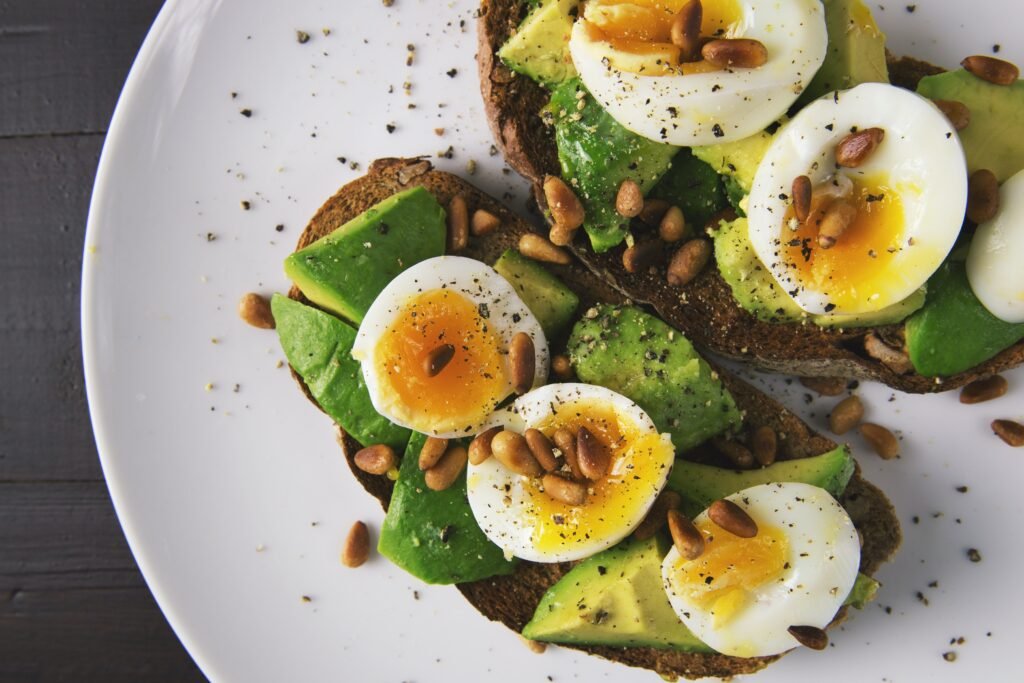The ketogenic diet has emerged as a fascinating contender in the world of anti-aging nutrition. With its notable benefits for weight loss and metabolic health, it has sparked interest in its potential to slow down the aging process. By significantly reducing carbohydrate intake and increasing fat consumption, the keto diet improves insulin sensitivity, reduces inflammation, and optimizes mitochondrial function.
The keto diet’s impact on anti-aging lies in its ability to enhance mitochondrial function, the energy generators of our cells. As we age, these mitochondria become less efficient, leading to reduced energy production and increased oxidative stress. However, the keto diet provides a clean and efficient energy source in the form of ketones, supporting optimal mitochondrial function and potentially slowing down the aging process.
The anti-aging benefits of the keto diet extend to cognitive health, skin rejuvenation, and heart health. It may have neuroprotective effects, improve collagen production, reduce skin inflammation and acne, and positively impact lipid profiles, decreasing the risk of cardiovascular diseases.
What You Need to Know About Anti-Aging Supplements: A Comprehensive Guide
Some of the links in this post are affiliate links. This means if you click on the link and purchase the item, I will receive an affiliate commision at no extra cost to you. All opinions remain my own. Read more on our Privacy Policy page
what exactly is Keto Diet
An Overview of the Keto Diet
The ketogenic diet, commonly known as keto, has gained considerable attention for its potential in weight loss and improving metabolic health. It involves a strategic reduction in carbohydrate intake and an increase in healthy fat consumption. By doing so, the body shifts its primary source of fuel from carbohydrates to fats, leading to a state of ketosis.
How the Keto Diet Works
Ketosis is achieved when carbohydrate intake is significantly restricted, prompting the body to utilize stored fats for energy production. As a result, ketones, byproducts of fat metabolism, are produced and become the primary fuel source for the body’s cells. This metabolic shift provides numerous benefits.
Benefits of the Keto Diet for Weight Loss and Metabolic Health
- The keto diet is effective for weight loss by promoting the burning of stored fat for energy.
- Clients have achieved substantial weight loss success on the keto diet, with improved overall health and energy levels.
- The keto diet improves insulin sensitivity, making it beneficial for individuals with insulin resistance or type 2 diabetes.
- It has a positive impact on lipid profiles, reducing triglyceride levels and increasing HDL (good) cholesterol.
- The diet helps stabilize blood sugar levels, reducing the risk of spikes and crashes.
- Clients with diabetes have reported improved blood sugar control and reduced medication requirements.

Youthful Secrets Unveiled: The Power of Intermittent Fasting for Anti-Aging
The Link Between Ketosis and Anti-Aging
Introduction to the Aging Process
Aging is a natural and intriguing journey that we all experience. As time goes by, our cells, tissues, and organs undergo changes that can result in a decline in their function. This can make us more vulnerable to age-related ailments and overall health challenges. Exploring the mechanisms behind aging is crucial in our quest to find ways to slow down its effects and embrace a healthier, more vibrant life.
Exploring the Role of Cellular Aging and Inflammation
Cellular aging plays a pivotal role in the aging process. Over time, our cells accumulate damage and become less efficient in performing their tasks. Unfortunately, this decline often coincides with chronic inflammation, creating a harmful cycle that further accelerates the aging process and heightens the risk of age-related conditions.
Ketosis as a Potential Anti-Aging Mechanism
In recent years, the potential anti-aging effects of ketosis, which is induced through following a ketogenic diet, have attracted significant attention. Ketosis offers various mechanisms that may counteract cellular aging and inflammation, providing a pathway towards a more youthful state.
Enhanced Mitochondrial Function:
Mitochondria, the powerhouses of our cells, are responsible for energy production. As we age, their function tends to decline. However, the ketogenic diet has shown promise in enhancing mitochondrial function. By offering an alternative fuel source in the form of ketones, this diet can optimize energy production and alleviate oxidative stress, potentially slowing down the aging process.
Reduced Oxidative Stress:
Oxidative stress arises when there is an imbalance between harmful free radicals and the body’s ability to neutralize them. It is a major contributor to cellular damage and aging. The ketogenic diet, by limiting the production of reactive oxygen species (ROS), can help reduce oxidative stress. Moreover, it decreases glycation, a process where glucose reacts with proteins, which further alleviates the detrimental effects of oxidative stress on aging.
Increased Autophagy and Cellular Renewal:
Autophagy is the body’s way of cleansing cellular waste and rejuvenating damaged components. It plays a vital role in maintaining cellular health and promoting longevity. Studies indicate that the ketogenic diet can enhance autophagy, enabling cells to efficiently remove accumulated waste and stimulate cellular renewal. This process contributes to overall cellular health and has the potential to slow down the aging process.

Anti-Aging Benefits of the Keto Diet
Cognitive Health and Brain Aging
- Ketones as an Alternative Brain Fuel: One fascinating aspect of the keto diet is its ability to provide ketones as an alternative fuel source for the brain. Unlike glucose, which is the brain’s primary energy source in typical conditions, ketones can efficiently cross the blood-brain barrier and serve as a stable and efficient energy substrate. This alternative fuel source holds significant potential for maintaining cognitive health and combating age-related cognitive decline.
- Neuroprotective Effects of Ketosis: Ketosis has been shown to possess neuroprotective properties, safeguarding the brain against oxidative stress and inflammation. Moreover, it stimulates the production of brain-derived neurotrophic factor (BDNF), a protein that supports the growth and survival of neurons. These neuroprotective effects may contribute to preserving brain health and sustaining cognitive function as we age.
Skin Health and Rejuvenation
Impact of the Keto Diet on Collagen Production:
Collagen, a crucial protein responsible for skin strength and elasticity, tends to decline with age, leading to wrinkles and sagging. The keto diet can positively influence collagen production through its emphasis on healthy fats and adequate protein intake. Essential nutrients obtained from these dietary sources contribute to collagen synthesis, potentially promoting skin elasticity and reducing visible signs of aging.
Reduction of Skin Inflammation and Acne:
Inflammation plays a significant role in skin aging and common conditions like acne. The anti-inflammatory nature of the keto diet may benefit skin health. By minimizing carbohydrate intake and stabilizing insulin levels, the diet helps reduce systemic inflammation, potentially resulting in decreased skin inflammation and improved acne control.
Heart Health and Longevity
- Effects of the Keto Diet on Lipid Profiles: The keto diet has been found to positively impact lipid profiles by increasing levels of high-density lipoprotein (HDL) cholesterol, commonly known as “good” cholesterol. It also tends to decrease triglyceride levels, a type of fat associated with an increased risk of cardiovascular diseases. These improvements in lipid profiles may contribute to better heart health and overall longevity.
- Decreased Risk of Cardiovascular Diseases: By reducing inflammation, oxidative stress, and improving lipid profiles, the keto diet may help lower the risk of cardiovascular diseases such as heart disease and stroke. However, it is essential to consider individual factors, existing health conditions, and overall dietary quality when incorporating the keto diet for heart health benefits.
Incorporating the keto diet as part of a holistic anti-aging approach should be done under the guidance of a healthcare professional or a registered dietitian. It is crucial to monitor nutrient intake, ensure a well-balanced diet, and consider individual needs to optimize the anti-aging benefits of the keto diet while promoting overall well-being.
READ MORE
Embracing the Keto Diet as Part of an Anti-Aging Lifestyle
Getting Started with the Keto Diet
Embarking on a keto diet can be an exciting step towards embracing an anti-aging lifestyle. As a nutritionist with years of experience, I’ve witnessed the transformative effects it can have on my clients’ well-being. Here are some practical tips to help you begin:
Educate Yourself:
Take the time to understand the principles and guidelines of the keto diet. Dive into reliable resources, consult with a nutritionist or dietitian, and familiarize yourself with the optimal macronutrient ratios, food choices, and potential challenges associated with this dietary approach. Empower yourself with knowledge to make informed decisions.
Plan and Prepare:
Preparation is key to success on the keto diet. Work closely with a nutritionist to develop a personalized meal plan that aligns with your preferences, lifestyle, and goals. Together, you can identify keto-friendly ingredients that you enjoy and stock your pantry and fridge accordingly. Having these essentials readily available will make sticking to the diet much easier.
Gradual Transition:
Transitioning to the keto diet doesn’t have to be abrupt. I often advise my clients to start by gradually reducing their carbohydrate intake while slowly increasing their fat consumption. This gentle approach allows their bodies to adjust more comfortably and minimizes potential side effects during the transition period.
Monitor Your Progress:
As a nutritionist, I emphasize the importance of self-awareness and self-monitoring. Keep a journal to track your food intake, energy levels, mood, and any changes you observe in your body. This valuable feedback will help you make adjustments to your diet as needed and optimize your keto experience.
Combining the Keto Diet with Other Anti-Aging Practices
To maximize the anti-aging benefits of the keto diet, it’s essential to adopt a holistic approach that encompasses other healthy habits. Here are some practices I often recommend to my clients:
Regular Exercise and Physical Activity:
Engaging in regular exercise not only supports weight management but also promotes overall well-being. Find activities that you genuinely enjoy, whether it’s strength training, yoga, hiking, or dancing. By combining the keto diet with regular exercise, you can enhance the anti-aging effects and improve your fitness levels.
Stress Management and Quality Sleep:
Chronic stress and inadequate sleep can accelerate the aging process and hinder your health goals. I work closely with my clients to develop personalized stress management techniques that fit their lifestyles, such as mindfulness meditation, journaling, or engaging in hobbies they find calming. Prioritizing quality sleep is equally important, and I provide strategies to improve sleep hygiene and establish a consistent bedtime routine.
Antioxidant-Rich Foods and Supplements:
Antioxidants are powerful allies in fighting cellular damage and oxidative stress. I encourage my clients to include a wide variety of antioxidant-rich foods in their keto diet, such as colorful berries, leafy greens, and vibrant vegetables. Depending on their unique needs, I may suggest high-quality antioxidant supplements to further support their anti-aging goals.
From my experience as a nutritionist, I have witnessed the remarkable transformations my clients have achieved when they combine the keto diet with other healthy lifestyle practices. By tailoring these practices to their individual needs and preferences, we create a comprehensive approach to healthy aging that goes beyond just following a specific diet. Remember, collaborating with a nutritionist or registered dietitian can provide personalized guidance and support on your anti-aging journey, ensuring you achieve optimal results and maintain a vibrant, healthy lifestyle.

Conclusion
In conclusion, the keto diet presents an intriguing option for individuals seeking to counteract the effects of aging. Its potential benefits on cognitive health, skin rejuvenation, and heart health make it an attractive strategy worth exploring. However, it is important to approach the keto diet with a personalized perspective and an ongoing commitment to research and understanding.
While existing evidence points to the advantages of the keto diet, further studies are required to comprehensively grasp its long-term implications and optimal application. Consulting with healthcare professionals or registered dietitians will enable you to receive tailored advice that considers your unique circumstances, preferences, and health objectives.
It is crucial to remember that the keto diet should not be viewed as a standalone solution to halt the aging process. Adopting a holistic approach that encompasses regular exercise, stress management, and quality sleep is vital for overall well-being and graceful aging. By integrating the keto diet with these healthy practices, you can enhance its potential to foster a vibrant and age-defying lifestyle.
When considering the integration of the keto diet into your anti-aging regimen, seek personalized guidance, remain informed, and embrace a comprehensive approach. Through dedication and support, you can optimize the benefits of the keto diet and embark on a transformative journey towards a more youthful and flourishing future.
How to Choose the Right Health and Wellness Program: A Detailed Overview
FAQs
Is the keto diet suitable for everyone?
The keto diet may not be suitable for everyone as it depends on individual factors such as existing health conditions, medications, and personal goals. Consulting with a healthcare professional or registered dietitian can help determine if it is a good fit for you.
Can I consume carbohydrates at all while on the keto diet?
While most carbohydrates are limited on the keto diet, you can still enjoy low-carb vegetables and small portions of berries, which provide essential nutrients and fiber while keeping carbohydrate intake within the desired range.
Will I experience side effects when starting the keto diet?
Some individuals may experience temporary side effects known as the “keto flu” during the initial transition. These can include fatigue, headaches, and irritability. Staying hydrated, maintaining electrolyte balance, and gradually easing into the diet can help minimize these symptoms.
How long does it take to enter ketosis?
The time it takes to enter ketosis can vary. Generally, it takes around 2-7 days of restricting carbohydrates to induce ketosis. Factors such as metabolism, activity level, and adherence to the diet can influence the timeline.
Is it necessary to track macronutrient intake on the keto diet?
Tracking macronutrient intake is recommended on the keto diet to ensure adherence to the desired ratios of fat, protein, and carbohydrates. This helps maintain ketosis and achieve the intended benefits. Mobile apps and online tools can be useful for simplifying macronutrient tracking.






